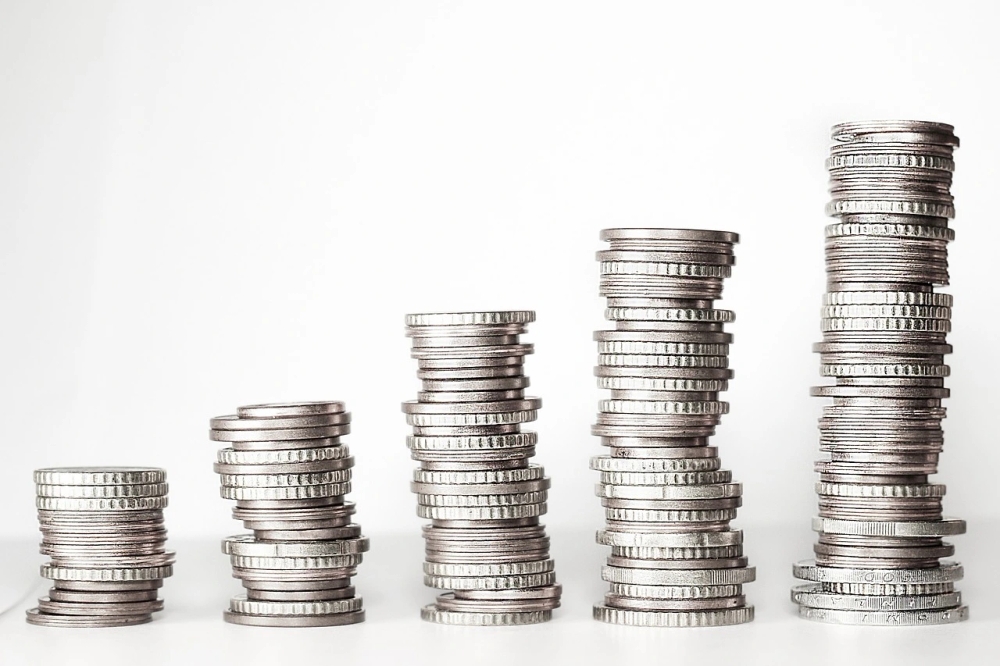Published
- 5 min read
Definition of Money

Contrary to popular belief, money is very simple — it is a tool created by society to allow an easier trading of merchandise. It’s a simple I-owe-you bill that gives us the ability to “sell” to one person and buy from another, without having everybody meet up in an alley. You make someone a sandwich, and for the work you did and materials you gathered you are eligible for a same-value toast at another place. The buyer of the sandwich was eligible for that sandwich because he did something else for society (probably between 9 to 5).
This is the simple purpose of money, there is no other.
Well that’s awkward, only one paragraph… What now? I guess I have more room to continue with another related topic, the value of money, or more specifically — inflation.
Inflation
For the lucky ones who never took the time to understand the meaning of the term: inflation is the phenomenon in which the same amount of money is worth less and less over time (technically it refers to one of the reasons it happens, but we’ll ignore that for now). This means that with the I-owe-you bill you received from society for making a sandwich 10 years ago, you will not be able to hold anyone accountable today for getting a same-value sandwich.
Let’s see if that makes sense. As technology improves, it gets easier for humans to generate value. You can gather more vegetables with less workforce, construct buildings faster, and live longer — generally do more with less. That means one building today physically costs less than it did 10 years ago. That means that with the hard work you put into doing something 10 years ago you should be able to get more value today.
This is the goal of the free market — it makes society figure out how to make things more efficient (not to be confused with the not-so-free part of our “free market” such as patented merchandise and monopolies).
So why does inflation happen? Physically speaking it shouldn’t happen, technically a deflation is occurring, but other forces are causing society to not hold up to its I-owe-you bills. Two examples will be provided here for why money is worth less and less over time, please feel free to comment to discuss more ideas.
Reason #1: Printing
The reason for calling it inflation: the people in charge of the physical bills everyone is using are cheating, making fake I-owe-you bills without doing any work (inflating the amount of money in the universe). Doing this automatically reduces the value of already-existing bills. Our universe is a balanced one, you cannot simply create something from nothing. In other words — governments take money from its people.
Don’t get angry though, it’s fine if you call it taxes as eventually the money is mostly spent on you. It’s a special kind of tax though — it subtracts from your savings instead of your income.
Reason #2: Loans
When someone gets money without doing any work they will psychologically value the money less. Since they don’t know how much work was put into gathering that amount of money, they don’t know what is owed for those bills.
Loans help people buy apartments before doing the work required for it, but it comes at a price of not being able to accurately assess the money’s worth. The seller will sell to the highest bidder, and if it’s easier to get higher loans then that highest bid will be higher.
The actual responsibility to evaluate then lies on the loaners, which are usually banks. Unfortunately, banks will never be able to accurately assess the actual value of the money they work with as it’s not theirs, and there is no physical link connecting the people in charge of the money with the work which generated that money. A free(er) market causes irresponsible banks to give out money more easily, which will make buyers value the money less, which will make sellers ask for more, which is the definition of inflation.
The Stock Market
Last thing to mention regarding money is the almighty stock market.
The stock market is the way for businesses to ask the public for money (no, it wasn’t invented by kickstarter). After the funds are raised, the stock market doesn’t have any impact on the real world.
Setting a few dividends aside, the stock market is not generating physical value — for every cent you gain it’s either a cent someone else lost, or a cent that was never in the stock market circulation before. Given that rule — you are either better or worse than half, at deciding what to buy and how much, and you are betting on actual work you did for society on it. Since no value is generated (no buildings are built and no sandwiches are made with that money), it’s not so different from gambling (there are calculated gambles as well).
Anyone telling you the stock market is the only way to make sure the value of money is preserved is either lying or doesn’t know what they’re talking about (most likely the latter). The only real reason to persuade you to invest in the stock market is for you to add money to this spinning bucket, so that people who are better gamblers than you can win it over (and there are always better, see “algo-trading”).